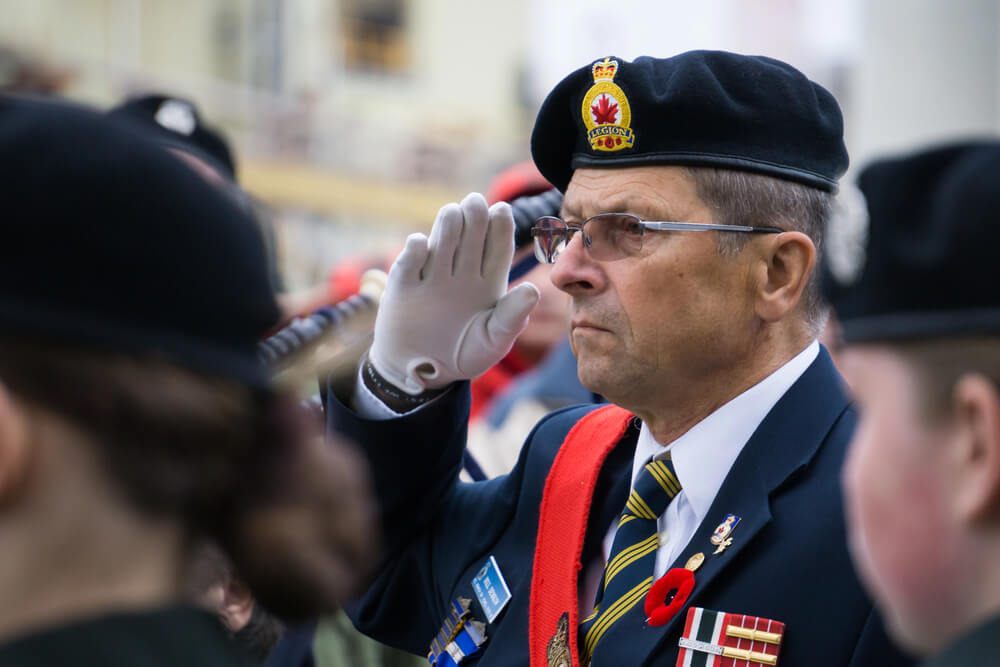The shift from military to civilian life, known as the military-to-civilian transition (MCT), is a pivotal time for Veterans, marked by major life changes. Leaving behind the structure, identity, purpose and social bonds of military life can often feel overwhelming and has been described as “culture shock.” Often with MCT culture shock, experiences of loneliness and social isolation occur. These experiences have been shown to negatively impact health and well-being.
Studies on volunteerism — centered on the drive to help others and build stronger communities — suggest that volunteering may be a valuable way to help Veterans overcome MCT challenges and contribute to the collective well-being of our nation. While the benefits of volunteerism have been explored in other countries, Canada has yet to pursue research or robust policy in this important area — leaving a noticeable gap.
As the number of Canadian Veterans steadily increases, more Veterans will face difficulties as they reintegrate into society; certainly, many will be interested in new and different paid and unpaid civilian opportunities to leverage their strengths and interests. Now is the time for Canadian policymakers and organizations supporting Veterans to take action.
Canadian Veteran volunteer programs should be guided by Canadian-specific research; volunteer programs should include evaluations and assessments reflective of Canadian Veterans’ goals, values and diversity; and policymakers, Veteran advocacy groups and researchers should collaborate to make volunteerism a cornerstone of MCT support.
Transitioning to civilian life
Military service is an unparalleled career path. It is characterized by a distinct culture of uniformity, discipline, social norms and shared values. Members of the Canadian Armed Forces (CAF) operate within a tightly knit community, and many basic life necessities such as housing and healthcare, are provided within this system. When Veterans leave this structured environment, they must adapt to a civilian world that often lacks the same level of cohesion and support.
Although each Veteran’s MCT experience is unique, it has important implications for health and well-being. In Canada, almost one in every four Canadian Veterans report MCT difficulty. Common difficulties include loneliness and social isolation which negatively impact health and well-being. For Veterans navigating depression, post-traumatic stress disorder (PTSD) or other chronic conditions, the effect is even more pronounced.
Finding belonging and purpose: Looking at the evidence
Volunteering is not just a benefit for Veterans who may be experiencing challenges — it is an important contribution to the collective well-being of our nation. Volunteering is about giving back to the community, which strongly aligns to the sense of duty and service that military members develop during their careers. That’s why many Veterans find volunteering especially meaningful.
Well-designed volunteer opportunities can foster a sense of connection, offer a renewed sense of purpose and a meaningful outlet for Veterans to apply their unique skills and values in civilian settings. In the United States, research has shown that volunteering helps mitigate identity loss at the close of a military career by creating new opportunities to serve and lead.
Volunteering has also shown that Veterans can overcome social isolation by connecting with their communities, creating a renewed sense of belonging. Among older adults, volunteering has been linked to reduced mortality and lower rates of depression, highlighting its potential long-term benefits.
Policy recommendations: Bridging the gap in Canada
A report prepared for the True Patriot Love Foundation and the Canadian Institute for Military and Veteran Health Research (CIMVHR) reviewed more than a dozen international studies focused on Veterans and volunteerism. Despite evidence that shows volunteering is beneficial for individuals and society, Canada lacks a comprehensive framework for leveraging it as a tool to support Veterans.
Questions about volunteer preferences, patterns, and motivations among Canadian Veterans remain unanswered. What types of volunteer opportunities align best with Veterans’ values? How does age, gender, sexual orientation, employment status, family structure, race and geography impact Veterans’ MCT experiences, health and well-being? Answers to these questions are key for the creation of inclusive programs that truly support Veterans and help them thrive in their communities.
Governments, policymakers and organizations that support Veterans are advised to take the following steps to address this gap:
- Canadian Veteran volunteerism policy and programming must be guided by Canadian-specific research.
This includes adding questions related to benefits, impact and barriers to national surveys, leveraging existing Statistics Canada datasets and conducting targeted studies with Veterans and their families.
- Organizations serving Veterans should integrate program formal evaluations and needs assessments to align volunteer opportunities with Veterans’ goals, values and diversity.
Factors such as age, gender, family structure, race, geographical location and other identities should be considered to optimize programming.
- Policymakers, Veteran advocacy groups and researchers should collaborate to make volunteerism a cornerstone of MCT support.
Engaging diverse stakeholders will ensure comprehensive, impactful programs. By bridging the gap between military service and civilian life, volunteerism could redefine what it means to serve — and help Veterans find new ways to thrive.
For Canada’s policymakers, this is a call to action.
We must ensure that volunteerism becomes a critical and well-supported component of Veterans policy, not just as a benefit for those who served but as a contribution to the collective well-being of our nation. The question is not whether we should act, but how quickly we can.
Photo courtesy of DepositPhotos




